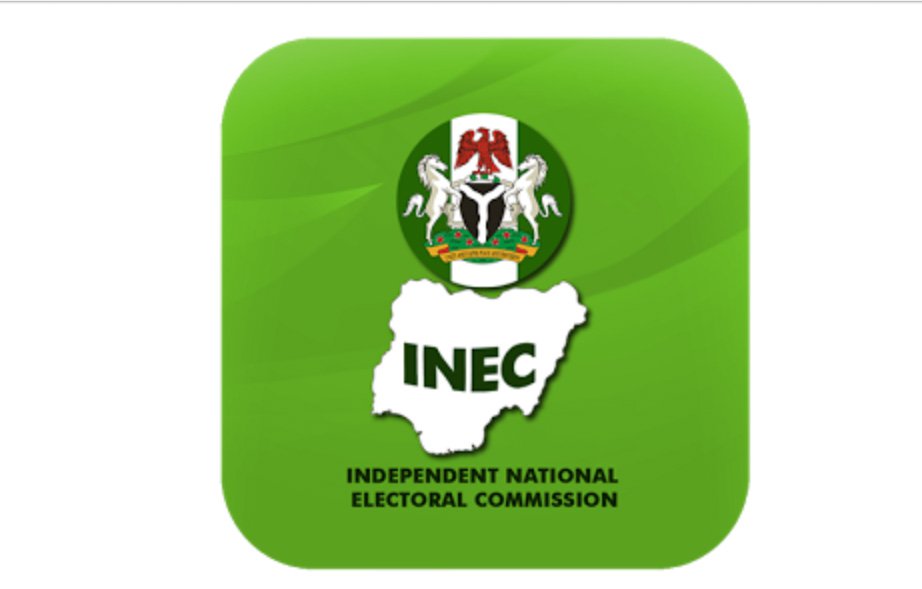Tag: BVAS
-
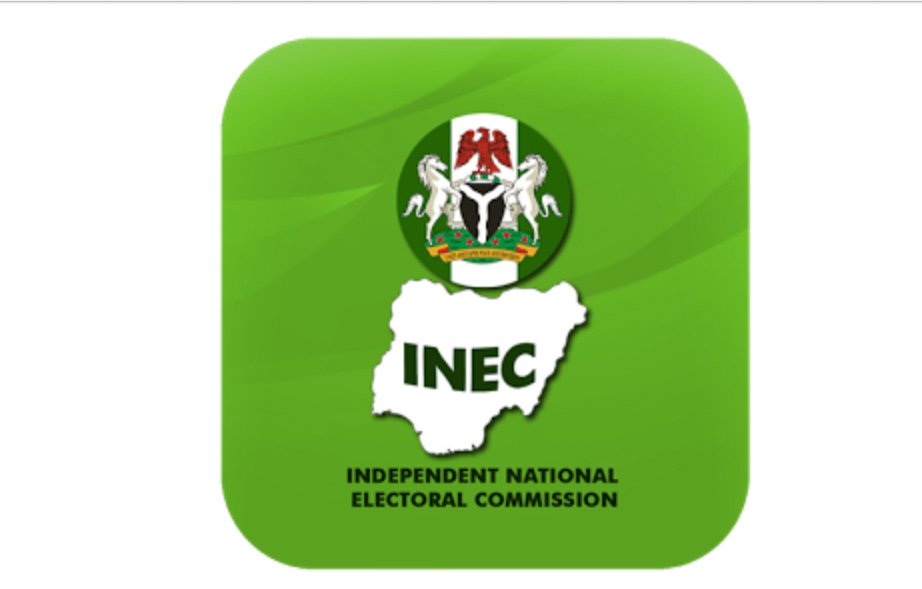
Revealed! Politicians want us to open BVAS for them – INEC
The Independent National Electoral Commission (INEC) has disclosed that some politicians want the Commission to open up the Bimodal Voter Accreditation System (BVAS) for them to gain access.TheNewsGuru.com (TNG) reports Mr Festus Okoye, INEC’s National Commissioner and Chairman, Information and Voter Education Committee disclosed this on Tuesday.Okoye said the politicians want to see the inside of the BVAS, in order to know how it functions for them to see whether there’s a possibility for them to clone it or manipulate it.“The Commission will not do that,” Okoye said, adding that the BVAS is robust and that it will be a game-changer in the 2023 general elections.The INEC National Commissioner, who made a live appearance on Channels Television’s Sunrise Daily, also addressed concerns over the possibility of over-voting.“Some of these fears are not valid. People are just throwing in issues into the fray to make sure that we disclose to them the complete and entire functionality of the BVAS.“There are some politicians who want us to open the brain of the BVAS [machine] so they can see inside the BVAS [machine], to see how it functions and for them to also see whether there’s a possibility for them to clone it or manipulate it and the commission will not do that.“Democracy can only be protected by a vigilant people and the law has given the political parties the power and the right to deploy their polling agents to all the polling units in Nigeria and to all the collation centres,” he said.Okoye noted that stakeholders are granted access to monitor the entire electoral process to ensure that nobody puts any foreign material into the ballot boxes on election day that will cause over-voting.“Our BVAS is a very robust gadget – a very robust instrument, and we have faith in it. We believe it is the ultimate arbiter in terms of those who want to manipulate the process.“I think that Nigerians should have faith in the BVAS. It is robust and will be a game-changer in the 2023 general elections,” the INEC official said. -

Unwritten rules of the 2023 elections – By Dakuku Peterside
Nigeria’s general election, the largest democratic exercise in Africa, begins on 25 February. All the parties and candidates are jostling to get the voters’ attention and convince them to vote for them in the elections. The wait is palpitating, and the electioneering campaign drama is thus far exhilarating. Everything but issues facing Nigerians is fair game and the political satire playing out even keeps the unapologetic patriot ashamed of our political process. Conventions and rules of the political games are written and broken with recklessness. Many parties’ political strategy seems to be “no strategy”. They seem to go with the flow of things with such fetish adherence to parochial and sentimental politics that is not based on decorum and pragmatic attempt to stabilise our country and put it on the growth path.
This make-or-mar election promises to be a referendum on the political orthodoxy and will chart the way forward for Nigeria in the new epoch. The seeming awakening of the youths, especially in major urban areas, for political participation, if appropriately harnessed, will reshape the political map of Nigeria. For this to succeed, there are unwritten rules and conventions embedded in the electoral process that shapes the context and outcome. Here are five unwritten rules you need to know about this election.
The first rule is that voters must be ready to be patient as the process may be cumbersome. The 2023 election will be the first time INEC will be deploying BVAS on a national scale. Like everything novel technology, it would come with challenges. Previous experience has shown that even passionate voters are easily discouraged when long queues appear or machines malfunction. In the past, long queues in elections had forced some officials to extend voting hours to accommodate the crowd. But that helps only voters who can stick around for hours. However, long waiting time discourages people from voting.
This is even worse when the weather is unfavourable – either the sun’s scorching heat is unbearable, or the heavy downpour of the rain soaks the voters. These in-climate conditions test even the most trusted and passionate voter. The reasons for long lines during voting include logistical nightmares that lead to voting starting late, poor staffing, untrained staff, and technical malfunctioning. INEC must anticipate these problems and have solutions before election day. Adequate preparation for the election will minimise most of these contingencies and alleviate long queues and waiting times during voting. However, when long lines and waiting times are inevitable, voters must develop the patience to do whatever it takes to vote and protect their voters. They are responsible for voting and supporting INEC to conduct a free and credible election in Nigeria.
The second rule is that voters are easily confused about choice of candidate versus choice of party . The 2023 general election is gearing to be such that voters may not vote according to party lines but according to the candidates fielded for the election. It is becoming more apparent in most places, that a voter may vote for a candidate in one party for the presidency, vote for another candidate in another party for the governorship and vote for another candidate in another party for the national and state assemblies. A recent African Polling Institute poll confirms that citizens are increasingly not fixated on voting along party lines but on specific candidates for the elections, though there are exceptions to this in some regions.
If this is anything to go by, many illiterate and semi-literate voters may need clarification and enlightenment . Political parties need to do more about voter education, and they ought to take responsibility for voter education. Parties must strive to teach their supporters what their emblems are so that when a voter is in the polling booth to vote, he will remember the party emblem of the candidate of his choice.
Any confusion on this creates more delays and sometimes leads to wrong candidates getting votes not intended for them. This anomaly underscores the importance of voter education by the parties, especially among rural dwellers who may need more exposure to information about candidates and parties before elections. Little wonder parties with excellent grassroots mobilisation systems tend to do better in rural communities where they educate their supporters to vote anywhere, they see the party emblem in the voting paper, thereby creating a bandwagon-winning effect for candidates of popular parties.
The third unwritten rule is that polling booths attract activities of party agents, voters, INEC officials and sometimes security officers and end up being spark plug for violence . People are emotional and often prone to being argumentative and restive. Arguments at polling booths always end in violence, so avoid it. In our polarised, frayed-nerves society, there’s a severe possibility that people blow minor issues out of proportion and cast them in sinister terms. Nigerians , according to Erin Meyer, in her book, Culture Map, are aggressive, confrontational in disagreement, and do not trust others.
A recent study showed that most electoral violence starts with minor quarrels. Electoral violence has taken some Nigerians’ lives, and this is a menace that must stop. The 2023 election is not worth the life of any Nigerian. In a country where life is worth less and people are ever ready to intimidate, dominate and eliminate others with impunity and little or no consequences, we must avoid any situation that will lead to violence. Avoiding arguments is the first step in that direction. In a past election incident, two of our citizens lost their lives because of a dispute at the polling vicinity. This is unfortunate, and we must avoid it in the upcoming elections.
Related to this is the fact that there is increased burden on security agencies more than in previous elections to maintain neutrality.
The fourth unfortunate unwritten rule is that party operatives will do everything they can to undermine, rig or even disrupt the election for their selfish reasons. The more INEC comes up with new processes and technology to avert vote rigging, the more party operatives hellbent on rigging the election innovate to get other means of succeeding in influencing the electoral outcome. The creativity of election riggers in Nigeria is mind-boggling, and if such creativity is harnessed for better productive ends, Nigeria will benefit significantly from that.
For the 2023 general election, where INEC has improved on the use of technology to reduce or eliminate election rigging, party operatives are resorting to voter inducement and vote buying to influence the outcomes of elections. A new public opinion poll conducted by NOI polls has revealed that 26 per cent of registered voters would be willing to sell their votes for monetary or material gains during the 2023 general election. According to the report titled “Vote-Buying Poll’ released on Monday, 26 per cent translates to about 7.3 million votes which are enough to boost any candidate’s chances of winning.
Almost all parties acknowledge the biting poverty in the land. Parties, through their operatives, will try to buy votes. Party agents will lurk around polling stations and try to financially induce voters to vote for their candidates and parties. There is reason to suspect that despite all the explanations offered by Central Bank for limiting cash withdrawal to N20,000 a day, the main reason is to curb vote buying during the upcoming election. Nigerian rural-based voters and monetary inducement are inseparable. With Thumb printing ballot papers and snatching ballot boxes not looking feasible, vote buying is now the mainstay of parties’ strategies. Politicians start with a mindset cast in stone that only a better rigger wins elections and not the popular vote.
The last unwritten rule for the 2023 general election is that Parties and candidates should prepare for judicial adjudication, as Nigerians hardly accept the election result. The recent judicial pronouncement against the Osun state governor by the tribunal in the recent gubernatorial election is a case in point. I must point out here that the courts need to adjudicate in clear cases of improprieties during elections and render justice where it is deserved, but the tendencies of politicians trying desperately to use the court to decide electoral victories leave a sour taste in the mouth for democracy lovers.
After every election in Nigeria, the number of electoral cases instituted is mind-boggling. The majority of candidates that lose the election will go to court. The implication is that electoral results do not confer the outcomes of elections; instead, the courts do. The uncertainties that these impacts on the governance system are alarming. Newly elected candidates do not, from the unset, start working for the people; instead, they are bogged down with election petition issues until the case ends in court, often, the supreme court.
Although the unwritten rules of the 2023 elections covered here are not exhaustive, these five pointed out in this review are just representations of the many unwritten rules that will directly or indirectly impinge on the electoral success of the forthcoming elections.
I implore all stakeholders to critically evaluate these rules and some of the issues raised with the view of improving the election experience and outcome for Nigerians. Prevention is better than cure and to be forewarned is to be forearmed. We must continue to strengthen our democracy and usher in, after the election, a group of leaders that genuinely reflect the electorate’s choice to move our nation forward. The task at hand is enormous. This election is just the genesis of the process to start fixing Nigeria. The emerging leaders will stir the Nigerian ship for the next four years. Our future is in their hands. Therefore, we must vote wisely based on our conscience and conviction. The litmus test to evaluate a candidate for voting is “do I trust this candidate enough to put my future and that of my children in his hands”? Allow the answer to this question to guide your choice of candidate to vote for in this election.
-
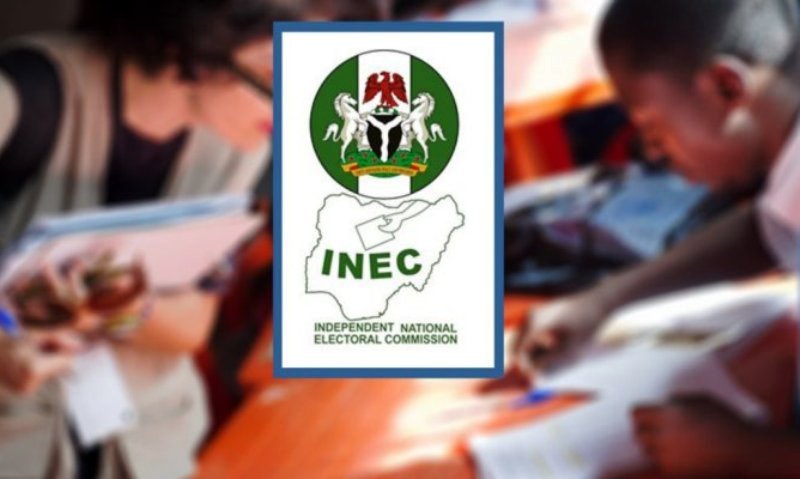
2023 elections: INEC fixes date to conduct mock accreditation
The Independent National Electoral Commission (INEC) has fixed Feb. 4 for the conduct of mock accreditation of voters with its Bimodal Voter Accreditation System (BVAS) in 436 polling units nationwide.
INEC Chairman, Prof. Mahmood Yakubu made this known at a meeting with Resident Electoral Commission (INEC) on Friday in Abuja.
Yakubu said that the exercise would take place in 12 designated Polling Units (PUs) in each state of the federation and four PUs in the Federal Capital Territory (FCT).
“As you are already aware, the Commission has taken delivery of the Bimodal Voter Accreditation System (BVAS) machines for the election.
“We have also dutifully tested each machine in our offices nationwide to ensure its functionality.
“The next step is to conduct field tests across the country involving actual voters.
“For this reason, and in readiness for nationwide deployment, the Commission is conducting a mock accreditation of voters similar to what was done ahead of the recent Ekiti and Osun State Governorship elections.
“The mock accreditation will hold on Feb. 4 in 436 polling units nationwide.
“Twelve polling units have been designated in each State of the Federation and four in the FCT on the equality of the country’s 109 Senatorial Districts for the exercise.
“A comprehensive list of the polling units, including their names and PU Code numbers, as well as their distribution by State, Senatorial District, Local Government and Registration Area (Ward) will be uploaded to the Commission’s website shortly.”
Yakubu appealed to registered voters in the affected polling units to appear on the scheduled date with their PVCs for the mock exercise.
He said that doing so will help to reassure the public of the robustness of INEC system and to strengthen its processes ahead of the general election.
He said that the civil society organizations, the media and the general public were welcome to observe the process.
“At the end of the exercise, the 436 BVAS machines involved will be reconfigured before they are deployed for the General Election,” Yakubu said.
Yakubu who said that the meeting was to put finishing touches to INEC preparations for the 2023 general election, reassured Nigerians of INEC commitment not to disenfranchise any Nigerian of its right to vote.
“am glad to report that movement of materials for the election to various locations nationwide is being concluded.
“Training of officials will begin shortly. Ongoing consultations with stakeholders will be intensified.
“Transportation and delivery of sensitive materials to States of the Federation has gone far.
“Accreditation of national and international observers and the media is being finalised.
“Critical service providers in the area of transportation have reassured us of their commitment to efficient logistics for the movement of materials and personnel to various locations while the security agencies have reaffirmed their readiness for the election.”
Yakubu, however, said that INEC was aware that there were a few issues to be addressed, including the ongoing collection of Permanent Voters’ Cards (PVCs).
He said that INEC was encouraged by the determination of registered voters nationwide to collect their PVCs and the actual level of collection so far.
“For instance, in Lagos State, which has the highest number of registered voters in the country, the Commission delivered 940,200 PVCs from the recent voter registration exercise (June 2021 to July 2022) for both new registrants and requests for transfer and replacement of cards.
“As of Thursday, a total of 839,720 PVCs have been collected representing 89.3 per cent of the total figure.
“This meeting with RECs will consider reports from other States of the Federation and the commission will not hesitate to consider additional measures to ensure that all citizens have ample opportunity to collect their PVCs ahead of the General Election.
“We wish to assure Nigerians that the Commission will always be responsive to the needs of the electorate.”
-
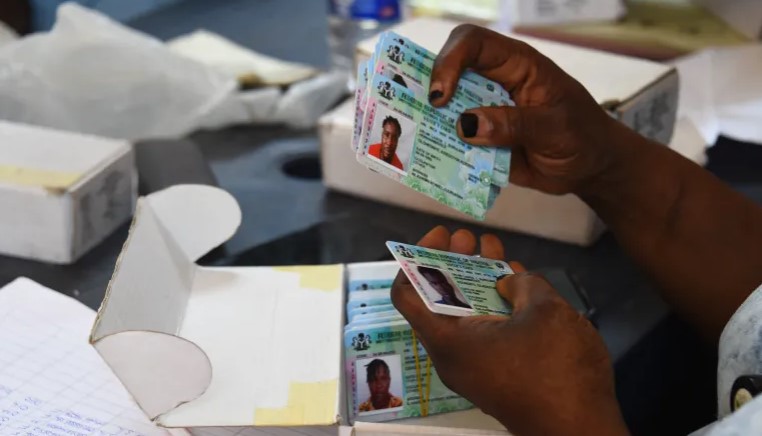
2023 elections: What you need to know about the BVAS technology
Nigeria, the giant of Africa is set to join the list of countries on the continent deploying biometric systems for the conduct of a free, fair and efficient general election, as it prepares to hold the seventh successive general election in the country since the return to democracy in 1999.
Other African countries that have deployed the use of this technology during elections include Angola, Burkina Faso, Cameroon, Chad, Comoros, the Democratic Republic of the Congo, Republic of Côte d’Ivoire, Gambia, Kenya, Lesotho, Liberia, Malawi, Mali, Mauritania, Morocco, Mozambique, Namibia, Rwanda, Senegal, Sierra Leone, Somaliland, Swaziland (Eswatini), Tanzania, Uganda, Zambia, and Zimbabwe.
These biometric systems include identification solutions for voter registration, voting, tallying and identification. Common modalities include fingerprint recognition, palm vein recognition, iris recognition and facial recognition.
The Independent National Electoral Commission (INEC), charged with the responsibility of overseeing the country’s electioneering process, has over the years sought to deploy technological innovations to improve the credibility, inclusiveness and integrity of elections.
Improving on the Smart Card Reader (SCR) technology introduced in 2015, the Commission will deploy the Bimodal Voter Accreditation System (BVAS) for the February polls, which will combine fingerprint and face biometrics for identity verification of voters and enable near real-time viewing of election results.
The technology was first deployed in the Isoko South Constituency 1 bye-election in Delta State on September 10, 2021. The BVAS was subsequently deployed for the November 6, 2021 Anambra governorship election and the Federal Capital Territory (FCT) Area Council Election of February 12, 2022.
How the BVAS will be deployed
According to INEC and how the BVAS has been used in the previous elections highlighted in the foregoing, the technology is used for the accreditation of voters.
Basically, the BVAS, which was allegedly designed by engineers in the country, integrates the three-stage voting process: enrollment, accreditation and election results upload.
After voting is concluded at the polling unit, the BVAS is used to scan and upload in PDF format the election result to the INEC Results Viewing Portal (IRev) in real-time on election day.
The introduction of BVAS has knocked out the use of Incident Form, which enables ineligible persons to vote using other people’s Permanent Voters Cards (PVCs) during elections.
INEC’s Deputy Director of ICT Lawrence Bayode said the electoral commission has put measures in place to ensure the BVAS was safe and cannot be compromised.
According to Bayode, any voter who fails to pass the fingerprints and face detection tests will not be able to vote during the election.
“I want to say again that we have done everything to ensure that the BVAS is not compromised. The data on the BVAS will be secured. After the poll, when the data is transmitted to our backend server, the data in transit will be secured and by the time the data gets to our backend server, the data will also be secured there.
“We have looked at the machine and we looked at a lot of things. As I said, earlier, you cannot build such a system and you won’t fortify the system to solidify it. Whether we like it or not, people will try a lot to beat this system. But the more they try, the more they meet a brick wall,” Bayode explained.
Meanwhile, the INEC Resident Electoral Commissioner in Akwa Ibom State Mike Igini has said that the deployment of the BVAS technology would also tackle election rigging and manipulation.
“If you look at all the innovations that we have put in place, the BVAS is the latest electoral sheriff in town. It has been described as a vaccine to deal with election rigging and manipulation in our country,” he said.
A total of 12,163 candidates sponsored by 18 political parties are on the ballot for election into 109 senatorial districts, 360 federal constituencies, 993 state constituencies, 28 governorship positions, and the Office of the President.
Nigerians are flocking to collect their Permanent Voters’ Card (PVC) from designated PVC collection centres, as the January 29th deadline for voter’s card collection draws near. Some states such as Cross River, Ekiti, Cross River and Lagos have declared days for public holidays to ease PVC collection.
Nearly 10 million new voters have been registered for the February 25 ballot, of whom 84 per cent are young people aged under 34 — a key block of ballots. However, many registered voters say that the process of collecting the PVCs has been slow and frustrating, accusing INEC of deliberately trying to disenfranchise Nigerians.
-
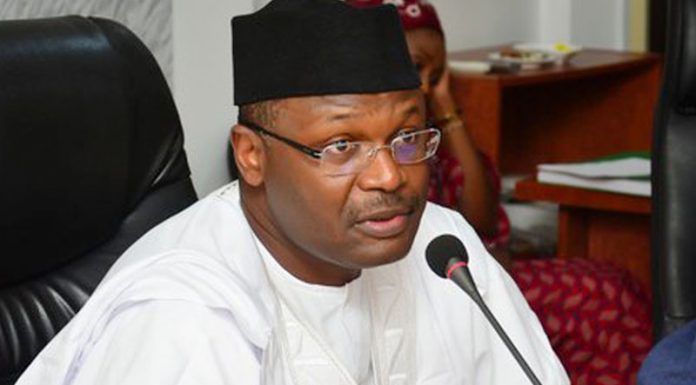
BVAS ends era of identity theft during elections – INEC
The Independent National Electoral Commission (INEC) said with the introduction of the Bimodal Voter Authentication System (BVAS), the issue of identity theft and other election frauds would be addressed during the 2023 general election.
Alhaji Umar Ibrahim, the Resident Electoral Commissioner (REC) for Gombe State, stated this during a stakeholders’ meeting on the preparations for the 2023 general election held in Gombe on Wednesday.
Ibrahim said the credibility of the 2023 general elections remained a top priority for the commission, hence the introduction of improved technology in recent elections to enhance the electoral processes.
According to him, with BVAS only voters will determine who wins elections in the country.
“I assure the good people of Gombe State that the days of identity theft during elections are over and only voters can determine the winner of elections in this country.
“There is no doubt the deployment of technology has greatly improved the conduct of elections in this country over the years.
“During the 2023 general elections, the commission will be deploying the BVAS for accreditation of voters and transmission of results,” said Ibrahim.
The REC said Gombe State had received the full complement of BVAS required for the conduct of the 2023 general elections in the state.
Ibrahim assured residents of Gombe State that the commission was ready to conduct credible elections in the state, adding that 10 out of the 14 outlined activities had been carried out.
He appealed to all stakeholders to play their roles towards ensuring the smooth conduct of the 2023 elections.
“The conduct of credible elections is not the responsibility of INEC alone; free, fair, credible, peaceful, all-inclusive and accountable elections are a product of concerted efforts by all stakeholders.
“I urge you to join us in discouraging PVC selling/buying and vote selling/buying in the strongest terms as it stands against democratic norms and principles,” he said.
Speaking further on BVAS, Mr Bitson Simon, Head of Department, Information and Communications Technology (ICT) and Voter Registry, Gombe State office, INEC, said the BVAS device had been described as a “game changer” in recent elections.
Simon said the device was introduced by INEC as a solution to the inadequacies of the card readers, which were used in precious elections.
He said with BVAS, frauds being perpetuated on election day in previous elections would no longer be possible, adding, “election by proxy will not be possible with BVAS.”
According to him, BVAS will be used to accredit voters, transmit accredited data to INEC server and transmit election results into INEC review portal.
Simon said the BVAS machine would improve the transparency of the 2023 elections.
-

2023: BVAS, solution to election rigging – PDP
Sen. Walid Jibrin, the Chairman, Atiku/Ombugadu Campaign Council in Nasarawa State, says the Bimodal Voter Accreditation System (BVAS) is a solution to election rigging in 2023.
Jibrin, who is a former Chairman, BOT PDP, stated this during the party’s campaign in Akwanga Local Government Area of the state.
He said that BVAS would curtail electoral fraud in the general elections which would make the electorate votes count.
The chairman therefore urged electorate to vote Alhaji Atiku Abubakar as Nigeria’s president, Dr David Ombugadu as governor of Nasarawa State and all other PDP candidates in 2023.
He said that Atiku would rescue Nigeria from its present numerous challenges.
“A vote for Atiku/Okowa will rescue Nigeria from its present challenges and a vote for Ombugadu/Ohinoyi will bring speedy development across the state.
“A vote for all of our PDP candidates will enable all of us enjoy the much needed dividends of democracy,” he said.
Mr. Labaran Maku, the Director-General of Atiku/Ombugadu Campaign Council in Nasarawa state, described Nasarawa North as a home of PDP while assuring that the zone will deliver Atiku, Ombugadu and all other PDP candidates come 2023.
Maku, who hail from Akwanga zone and former Minister of Information, said that PDP would tackle insecurity and promote peace in the state and country at large, if voted.
The director-general also urged those who are yet to collect their Permanent Voter Cards ( PVCs) to do so in order to vote out APC government at the national and state levels.
Sen. Suleiman Adoke and Alhaji Mohammed Jafar, former House of Representatives member representing Nasarawa/Toto Federal Constituency, also said that the BVAS would kick out APC government in 2023.
They also urged the electorate to vote Atiku Abubakar for president, David Ombugadu as governor of the state and all other PDP flagbearers.
On their parts, Chief Mike Abdul, former Deputy Governor of Nasarawa state, and Chief Jacob Ali, Nasarawa North PDP Zonal Chairman, assured PDP of massive votes in the state.
They declared Akwanga zone as a PDP enclave.
They urged the electorate to vote all PDP candidates in 2023 in order to enjoy positive dividends of democracy.
Mr Francis Orogu, the state PDP Chairman, while presenting party flags to candidates of the party in the zone, said that PDP would tackle insecurity and improve on the standard of living of the people of the state, if given the mandate.
“The time has come to change APC; it is high time to show APC the way out of power because APC has failed and still failing us.
“Many have gone because of insecurity, hunger, poverty. It is time to tell APC good bye,” he said.
Dr David Ombugadu, the PDP Governorship candidate in the state, promised to prioritise security, health, water, education, and other infrastructure, if elected governor.
Ombugadu urged the electorate to have confidence in PDP, pledging that the party will not fail the people.
The PDP governorship flagbearer also promised to prioritise women and youths empowerment.
-
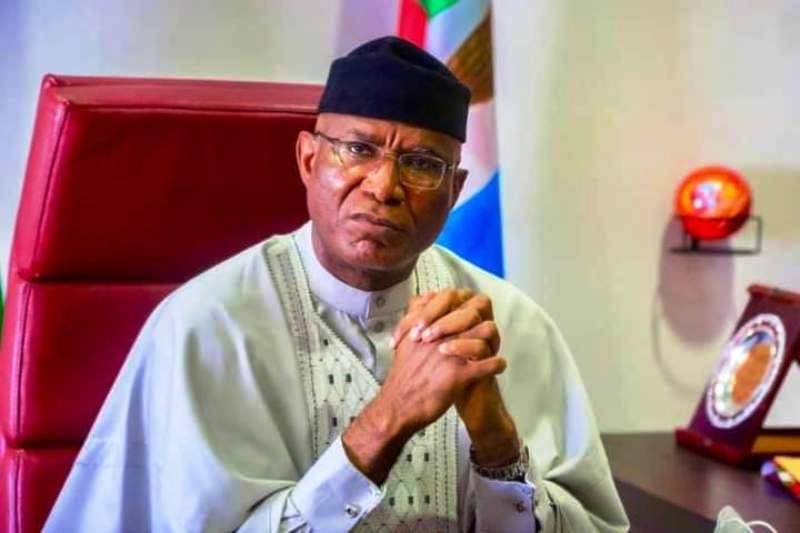
Delta 2023: We’ll resist attempts by PDP to intimidate us – Omo-Agege
Sen. Ovie Omo-Agege, the APC governorship candidate in Delta, has said that the era of politics of intimidation and violence was over with the introduction of BVAS machines in the nation’s electoral system.
Omo-Agege, who is also the Deputy President of the Senate, made the remark on Saturday during the party’s ward-to-ward campaign in Uzere, Aviara and Olomoro communities in Isoko South Local Government Area of the state.
The lawmaker representing Delta Central Senatorial District, said that the party would resist any attempt by leaders of the Peoples Democratic Party (PDP) to intimidate the APC members in Isokoland and other parts of the state.
“The politics of intimidation is over. With the introduction of the BVAS machine by the Independent National Electoral Commission (INEC), be rest assured that we buried the politics of intimidation and violence.
“Let me assure our teeming supporters that there will be adequate security in the next elections. For our supporters and Isoko people who want to vote for APC, come on the days of the elections and vote for us.
“For those planning to intimidate our members, they should know that we will resist them,” Omo-Agege warned.
He urged the electorate in Isoko and other parts of the state to turn out en mass to vote for all APC candidates in the Presidential, National Assembly, Governorship and State Assembly elections, assuring that there would be adequate security.
The lawmaker further assured the people of Delta that their votes would count in the forthcoming elections, adding that the era when election materials were snatched and thumb-printed in political leaders’ homes was gone forever.
At Aviara Kingdom, Omo-Agege told the cheering crowd that his administration resolved and restored the aged-long electrical blackout in the community.
Also, Mr Joel Thomas-Onowhakpo, the APC Delta South Senatorial candidate, urged the people of the state to collect their Permanent Voters’ Cards (PVC) ahead of the forthcoming polls.
He appealed to the electorate in Delta South to vote APC and ensure that PDP was relegated in the state
Thomas-Onowhakpo also urged the people to vote for Omo-Agege as governor, assuring that his administration would bring massive development to all parts of the state.
Highpoint of the campaign was the defection of scores of PDP chieftains in Isoko South, including former deputy governorship candidate of the Action Democratic Party (ADP), Mr James Igbi, to the APC.
Other defectors from the the PDP included Mr Goodluck Obrogo and Mr James Miller, a political aide to the majority leader of the Delta House of Assembly.
They announced their defection at Uzere, the country-home of PDP stalwart, Ogieh, saying they were rejecting the PDP for APC over the underdevelopment of Isoko Nation by the Gov. Ifeanyi Okowa-led administration.
Among the campaign train included the State Chairman of the party, Elder Omeni Sobotie; Director- General of Delta APC Campaign and former Minister of Niger Delta Affairs, Elder Godsday Orubebe.
Others were Dr Otive Igbuzo; Dr Ogaga Ifowodo; former APC chairman in Delta, Apostle Jones Erue; Mr Godwin Anaughe; Mr Karo Ilolo and Prince Yemi Emiko among others.
-
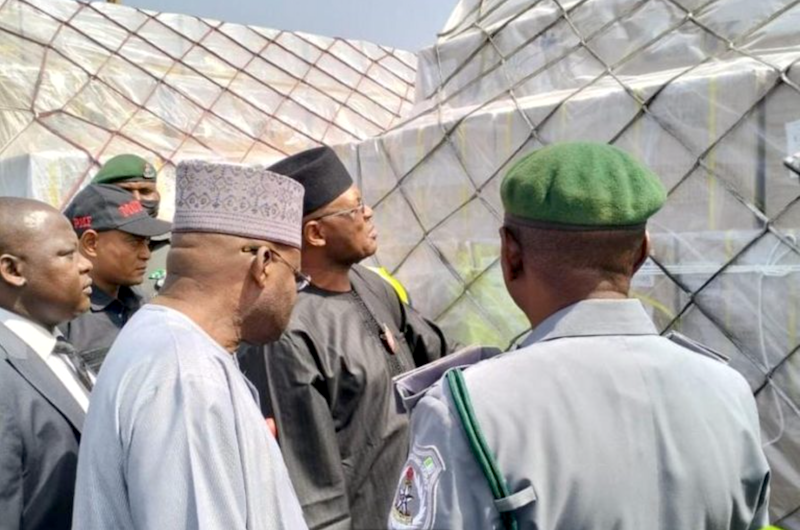
INEC takes delivery of last consignment of BVAS machines
The Independent National Electoral Commission (INEC) has taken delivery of its last consignment of the Bimodal Voter Accreditation System (BVAS) machines.
Mr Festus Okoye, INEC’s National Commissioner and Chairman, Information and Voter Education Committee made this known on Wednesday.
Okoye disclosed INEC’s Chairman, Prof. Mahmood Yakubu, National Commissioners and senior officials took delivery of the machines on Tuesday in Abuja.
He said officials of the Nigeria Customs Service, the Nigerian Aviation Handling Company and airport security officials were on hand at the Nnamdi Azikiwe International Airport, Abuja to receive the INEC team.
“To facilitate the smooth delivery of the machines, the Commission created four airport hubs in Abuja, Kano, Lagos, and Port Harcourt.
“Over the last four months, several flights delivered the BVAS to the designated airports for movement to states of the federation ahead of the 2023 elections,’’ Okoye told newsmen.
He said with the arrival of the last consignment in Abuja on Tuesday, INEC had now taken delivery of the required number of BVAS machines for all polling units in the country.
He said the consignment included extra machines that would become handy in the event of an emergency.
Okoye appreciated the support of all Nigerians in INEC’s determination to deploy technology in the conduct of free, fair, credible, transparent and inclusive 2023 general elections.
-
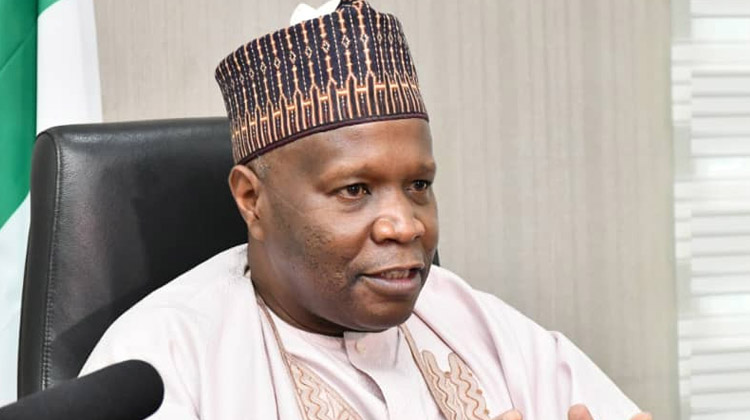
BVAS: No room for electoral fraud in 2023 – Gov. Yahaya
Gov. Inuwa Yahaya of Gombe State, said with the introduction of the Bimodal Voter Authentication System (BVAS), there is no more room for electoral fraud, come 2023 poll.
Yahaya, who stated this on Tuesday in Tukulma ward in Akko Local Government Area (LGA) of Gombe State, said prior to the introduction of BVAS device, the card readers which were used in previous elections, were manipulated by some politicians for electoral fraud.
The governor said the BVAS had been introduced by the Independent National Electoral Commission (INEC) to avert such electoral frauds.
He said he remained confident that if the 2023 elections were to be held anytime, the All Progressives Congress (APC) candidates at all levels would win elections in the state.
“Before now, some people will sit in a room and write results, declaring whoever the winner of election, but with BVAS, we are not scared because we have supporters,” he said.
Yahaya appealed to potential voters in the ward to ensure that they collect their Permanent Voter Cards (PVCs), adding that the PVCs remained the only tools for electorates to choice and determine their leaders during election.
He called on women and youths to vote for Bola Tinubu and all APC candidates in the state, adding that a vote for his party would help sustain the good performances so far recorded by his administration in the state.
Earlier, the State Director-General, APC Campaign Council, Mr Zubair Umar, appealed to supporters to collect their PVCs ahead of the 2023 general election to exercise their franchise.
Umar also called on youths to engage in peaceful politics and eschew violence.
He said that Yahaya needed no campaign for re-election because his administration had performed beyond expectations in all sectors.
According to him, there are over 200,000 PVCs yet to be collected in Gombe State, so I urge supporters and all those who registered to ensure that they collect their PVCs before elections to enable them vote the party of their choice.
